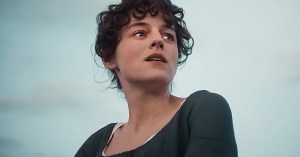Marvel Movie Madness! Part 3: The Incredible Hulk
The Hulk saga concludes. What did everyone think?
Enter Marvel Movie Madness, wherein Rotten Tomatoes watches all of the significant Marvel movies ever made. Full Marvel Movie Madness list here. Tune in! We give you our thoughts, and you give us yours.
Day 3: The Incredible Hulk (2008, 66% @ 211 reviews)
Directed by Louis Leterrier, starring Edward Norton, Liv Tyler, William Hurt, Tim Roth
Jeff: I had high hopes for The Incredible Hulk. An outstanding cast, an action-savvy director, the introduction of the Hulk’s most powerful enemy, and five years of special effects improvements could only help, right? Well…yeah…mostly. All in all, I enjoyed this a lot more than the first Hulk — it boasts a terrific first act that tells you everything you need to know in ten minutes, returns Bruce Banner to his fugitive roots, and ratchets up the tension by doling out brief glimpses of our wrathful green antihero. It also benefits from flashes of humor and an obvious respect for the character’s history.
But it loses momentum once Banner locks lips with his beloved Betty Ross (on a bridge! In a rainstorm!), and although the climactic battle between Hulk and the Abomination certainly delivers more action than we got in the first movie, it’s so overblown, and so larded over with CGI, that it doesn’t resonate the way it should. It feels like Zak Penn, Edward Norton, and Louis Leterrier got so excited about putting together a big ending that they didn’t know when to stop — “We’ll pit them against each other in the middle of Harlem! And Betty will be there in a helicopter that dangles them around for a few blocks before crash landing on a roof!”
All that being said, “big,” “loud,” and “overblown” are intrinsic qualities of the Hulk — and The Incredible Hulk brings them to life about as successfully as possible. I think he’s probably just a poor choice for a film protagonist.
Tim: I couldn’t agree more. What’s strange about The Incredible Hulk is that it’s obviously attempting to get the franchise back on track (no more subverting the superhero film, art house directors!), but it’s more compelling as a sort of Bourne-lite chase movie than it is as a re-introduction to the Hulk. They still don’t know what to do with the big green guy. There’s a terrific sequence at the beginning in which Banner is getting chased through a densely populated section of Rio, and director Louis Leterrier stages the whole thing with assurance — it’s a good chase scene, and there’s no shaky cam! But the whole thing comes to a screeching halt when the Hulk actually shows up.
It’s weird that The Incredible Hulk is most effective as a chase film. I think that Eric Bana looks more like Bruce Banner, but Ed Norton’s nervous energy and wounded psyche make for an interesting man-on-the-run figure. I love it when they’re running from the government and trying to figure out what to do. But the big action set-pieces are just so over the top. The sequence on the college campus, in which dozens of humvees are speeding over the quad and the military is firing on the Hulk, is kind of deadening — it goes on way too long, and there’s a strange lack of energy to the whole thing. Plus, as the recent raid on Osama’s lair in Pakistan has taught us, isn’t it smarter to stake out Bruce Banner and catch him with a tranquilizer rather than corner him, make him mad, and then unleash a barrage of useless weaponry on him?
Jeff: I thought the Hulk’s Rio appearance was the only one that worked, because you don’t really see him; Leterrier takes the thinking man’s horror approach there, and only gives you glimpses of the big guy between the carnage. It obviously wouldn’t have worked if he’d tried to stage the whole movie that way, but I can’t help wondering what might have happened if those action sequences had been dialed back just a little. For instance, going back to the campus battle — did we really need to see a helicopter explode all over Betty and the Hulk?
Ryan: Jeff, you’ve touched on one of the two central problems I had with the movie: Why couldn’t Leterrier have filmed the whole thing only showing glimpses of the Hulk? Because at the end of the day, people inevitably want to see some good, old fashioned “Hulk smash!” But that also brings me to the second problem I had, related to the first in such a way that I don’t know if a really good Hulk movie can be made anytime soon: filmmakers still haven’t quite figured out how to infuse a computer-generated character with believable humanity and work him into the film’s real-world universe seamlessly.
Like you guys, I thought the first half hour was the best part of the film, and Jeff’s horror comparison is right on, because the Hulk in this form is best in small doses. Banner is inherently a more interesting character than the Hulk, so whenever the big guy trots onto the screen in all his full, green glory, the film does lose momentum; the CGI is definitely improved, but not enough for the action to feel like anything more than a really fancy cartoon. Audiences are too sophisticated now to be wowed by the mere spectacle of another semi-realish-looking monster going berserk, unless you give that monster something super interesting to do; this isn’t 1933, and — let’s be honest — “Hulk smash!” isn’t really that interesting.
I didn’t hate the movie, though; I just found it surprisingly a bit lifeless. Tim Roth is always an excellent villain, and despite some of the more melodramatic moments (cue the spontaneous dusk and rain), I thought the cast did a fine job. It might be somewhat of an unfair criticism, but it was really the CGI that killed it for me. I’d totally watch a Bruce Banner chase movie, by the way.
Tim: Speaking of Tim Roth, he signifies one of the most interesting things (to me, at least) about this movie: the subtext of The Incredible Hulk. Like many iconic works of fiction, the classic Marvel comics were created in response to the social and political concerns of the day. But what happens when the times change, and what was once sci-fi is no longer, well, fi? Take Frankenstein: it was written at a time when scientists were learning how to harness electricity. Now that we’ve actually figured out how to create life in a lab (hello, Dolly the Sheep!), Mary Shelly’s intended allegorical concept has been lost to the ages. Likewise, the Hulk debuted during the Cold War, when nuclear obliteration seemed like a possibility, and kids in classrooms were being told to duck under desks to avoid radiation. While we’ve never totally shed our collective skepticism toward nuclear energy, we’ve entered an age in which the human body can be enhanced — and ultimately damaged — through the use of performance-enhancing drugs. In our modern era, you can literally become the Hulk. The Incredible Hulk was released only months after the Mitchell Report, which provided lurid details of a Major League Baseball culture rife with steroid use — essentially, Tim Roth is a stand-in for Roger Clemens.
Alex: Who gets to be Bo Jackson? I’m simply glad we’re getting no sequel out of this; Tim Blake Nelson was hammy and embarrassing and can’t imagine him returning as an effective villain at all.
Matt: You guys are being far too hard on this movie; for all its faults, I still mostly enjoy it. Liv Tyler is miscast here, but the storyline mostly works for me, especially in light of Ang Lee’ take on the big green guy. First of all, although not perfect, the Hulk looks MUCH better than he did in Lee’s movie (where he looked like Shrek). And although saddled with a lot of Avengers set-up, Leterrier manages to make most of it flow into the story much better than we saw in Iron Man 2. Secondly, I disagree with the idea of treating the Hulk as an unseen menace (a la the shark in Jaws) — if you’re going to make a movie out of the Hulk, you have to show him big as life and twice as mean. I enjoy the final fight scene because it’s so overblown, in true Hulk style. Also, let’s hear it for not making us sit through another origin story for 30 or 40 minutes. Can we all agree that we don’t need any more scenes in any movies about superheroes learning to use their powers? Been there, done that.
I do agree that the Hulk is a tough subject to use as a film’s protagonist. Creating legitimate conflict for the Hulk is similar to creating legitimate conflict for Superman; when your hero has god-like abilities, you need to raise the stakes pretty quickly or the movie won’t really work. Ang Lee’s Hulk never manages to do this in a satisfactory way, and I don’t think the Abomination is a home run here either. In my opinion, the best Hulk movie yet was the direct-to-video, animated Planet Hulk.
Ryan: I get where you’re coming from, Matt, and I actually think we agree on a lot of points; it’s just that I didn’t really find the movie as entertaining as you did. And your last point sort of speaks to one of the major issues I had: the best Hulk movie, in your opinion, is an animated one because, at least for me, it’s just not going to work in live action with our current CGI technology.






